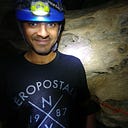Sleep, not Laughter Is The Best Medicine
I just got inspired to write this post after I finished reading Why We Sleep by Matthew Walker. I think it is one of the most thought provoking book I have read on any subject. Dr. Walker does an excellent job of analyzing every small and large aspect of sleep and shows how little of it we get.
The treatise starts out by defining what sleep is. He talks about circadian rhythm and what that means. According to an experiment done by a researcher inside the Mammoth Caves in Kentucky, the average circadian rhythm of a healthy human being is about twenty four hours and fifteen minutes. Note however, that our circadian rhythm is never static as we age. It changes between sleep and wake cycles with aging, however the duration remains approximately the same.
The book then delves into how many diseases physical and mental are related to sleep quantity and quality. Diseases on this spectrum include but are not limited to —
— Cancer
— Alzheimer’s disease
— ADHD
— High blood pressure
— Heart Disease
— Diabetes
The list is very long. The book shows the mechanism of repair during sleep which the human body undergoes. However, it also delves into what happens if one deprives oneself of sleep. To put it into simple words, our fight or flight system goes into overdrive and remains active for longer if we don’t get enough sleep. This causes an immense strain on our brains and body. This results in various physiological conditions which we then try to treat; but they are totally preventable.
You may have heard about dreaming and REM (rapid eye movement) sleep. Scientifically, REM sleep is the part of shuteye which is related to dreaming. Scientists have found that REM sleep and dreaming both are linked and both have a very important purpose. In fact the author cites multiple studies which have found that dreaming about previous traumatic events results in us being able to look at the experiences more objectively and obtain closure. This is due to decrease of a chemical — Noradrenaline in the brain during REM sleep. This chemical is associated with emotions and hence when PTSD (post traumatic stress disorder) patients are treated to help reduce this chemical they are able to get past their horrifying experiences.
If you’re on sleeping pills this book is certainly for you. The author vehemently advises against taking sleeping pills. According to the book there is no sleeping pill out there whose benefits outweigh the risks or side effects. In fact there have been studies cited by the author that show the increased mortality and cancer risk carried by people who take sleeping pills. In fact even for Insomnia patients the author recommends physical exercise and CBT-I (cognitive behavioral therapy for insomnia).
The book then delves into the culture of sleeping less and being proud of it. The push by multinational companies to increase the amount of hours employees are on the job; responding to e-mails and calls after work. Sleeping is seen as a weakness which is painful according to the author. Studies have shown that increased sleep means more productivity up to about 2.3% of the US total GDP; which is about 400 billion dollars every year.
Lastly the book talks about how we are slowly euthanizing ourselves and our children and teenagers by sleep deprivation. According to the author, teenagers have a slightly shifted circadian rhythm which means they sleep a little late at night and wake up a little later in the morning. This is not laziness or a matter of choice. This is in fact how evolution has molded us. However, society doesn’t help children or adolescents as sleeping till a little late is impossible given the early school schedules and the pestering parents thinking everyone needs to be on the same sleeping schedule as them.
The epilogue of the book shows how technology as embedded it is in our lives can be used for the betterment of sleep. Various tracking technologies and lighting technologies are already been worked upon which can improve our circadian rhythms and enable us to sleep better.
I feel refreshed after reading this book. It makes so much sense. I have actually deprived myself of sleep a lot in my life up until this point. And now I am going to make it imperative that I make sure to get 7–9 hours of sleep everyday. Apparently sleep is indeed the best medicine.
